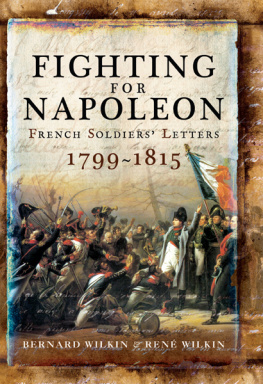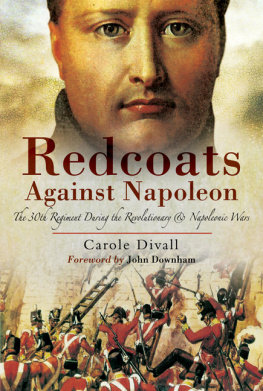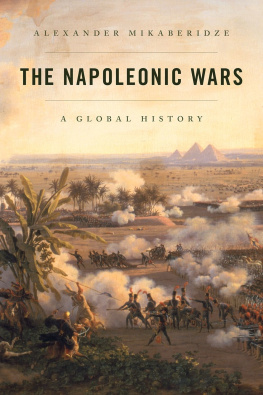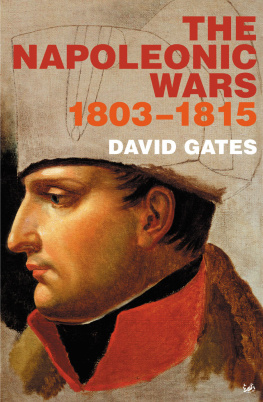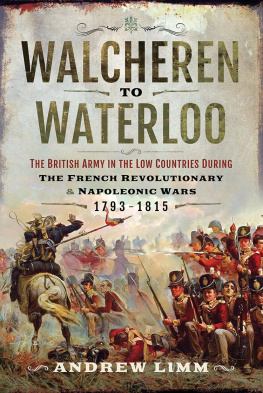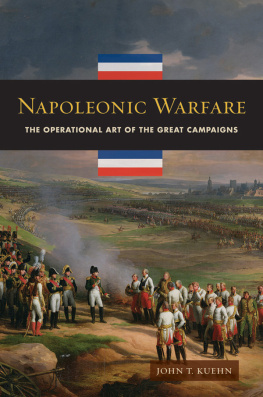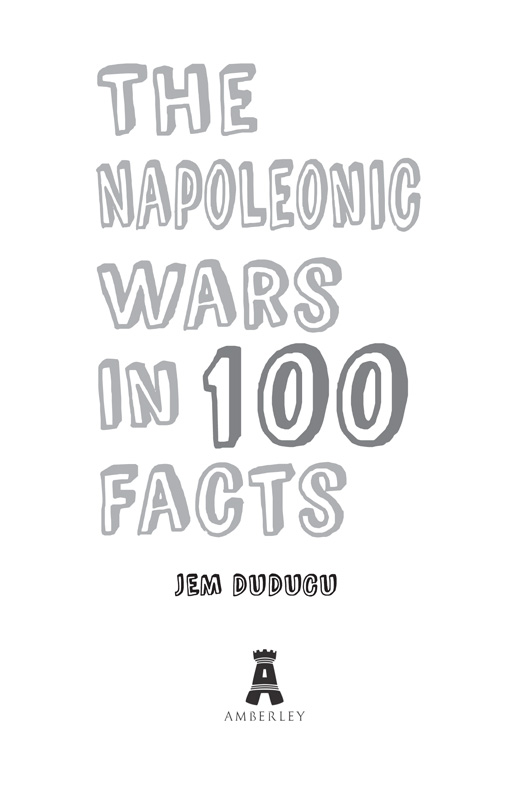Dedicated to Inji, Kathy, Alex and Delphi: this book so isnt you, but you get the dedication because you are all so important to me.
First published 2015
Amberley Publishing
The Hill, Stroud
Gloucestershire, GL5 4EP
www.amberley-books.com
Copyright Jem Duducu 2015
The right of Jem Duducu to be identified as the Author of this work has been asserted in accordance with the Copyrights, Designs and Patents Act 1988.
All rights reserved. No part of this book may be reprinted or reproduced or utilised in any form or by any electronic, mechanical or other means, now known or hereafter invented, including photocopying and recording, or in any information storage or retrieval system, without the permission in writing from the Publishers.
British Library Cataloguing in Publication Data.
A catalogue record for this book is available from the British Library.
ISBN 9781445646633 (PRINT)
ISBN 9781445646640 (eBOOK)
Typeset in 11pt on 13.5pt Sabon.
Typesetting and Origination by Amberley Publishing.
Printed in the UK.
THE FACTS
INTRODUCTION
The war from 1914 to 1918 is sometimes called the Great War but is far more often known as the First World War. This is odd because the whole world wasnt involved, and neither was the whole world fighting in the Second World War. What these two conflicts have in common were battles that occurred in far-flung places and mass destruction in Europe. So if those factors define world war, there have been many more than just two.
The wars that France fought after the French Revolution, which continued for about a quarter of a century and ended at Waterloo, are among the earliest world wars. Napoleon himself would fight on three continents, and Wellington fought on two. As you will see, there was fighting in both North and South America, on the tempestuous Atlantic, in the shadow of the pyramids and on the freezing steppes of Russia. This was an era when national borders were altered and political landscapes changed forever.
Much like the more famous later world wars, the Napoleonic Wars also marked an end to many of the old ways. While the fighting was truly epic, so were the social changes in Britain and throughout Europe. Some of the institutions created in the Middle Ages had lasted into the Age of Enlightenment but were finally moved into the pages of history with the close of this period. The eventual hard-won victory over Napoleon gave the British Empire further impetus to expand manufacturing, create new technologies and become the first industrialised nation in the world.
The topic then is broad, spanning decades and continents. You can find hundreds of books on these wars; some manage to spin out just one battle into 400 pages, so a newcomer can feel a little daunted. This book is the antidote to that problem; in just 100 facts you will get an overview of the most important people, battles and events of this turbulent era.
Because of the time span, titles often changed; therefore, terms such as general are used for expediency. The person in question at any particular battle or event may have been, specifically, a marshal or lieutenant colonel, but the broader point is that he was there in his capacity as a leader. Its also worth mentioning that exact numbers of troops or casualties are always up for debate. I tend to go for a reasonable average. In short, please remember that this book is a convenient summary of complex politics and countless battles.
This period was partially covered in The British Empire in 100 Facts; however, this book provides considerably more information about these twenty-five key years in European history. If a topic was raised in the previous book, it will be looked at from a new angle in this one.
If you are a history boffin who knows your Aboukir from your Austerlitz, then you are unlikely to find anything new here. This is a light, fast-paced introduction to the topic. You can read a few facts at a time or gorge on the whole lot in one go; its up to you. But I hope you have as much pleasure reading this as I had writing it.
1. THE TRIGGER FOR WAR WAS THE FRENCH REVOLUTION
Revolting against an autocratic regime was nothing new in the eighteenth century, nor was the idea of overthrowing a monarchy. Athens had been a democracy, Rome had been a republic and the English Civil War had seen Parliament kill a king.
However, since the Age of Enlightenment an era of philosophical and scientific blossoming centred in the mid-eighteenth century the intelligentsia of most countries realised there might be better ways to run a country than gambling on the rulers son being a competent replacement.
In France the initial stages of the revolution in 178990 saw these enlightenment ideals support a peasant uprising against crippling taxes and a feudal system that had changed little over the centuries. However, as William Pitt the Elder put it in 1770, Unlimited power is apt to corrupt the minds of those who possess it. So as a new political system began to emerge, there was a scramble for power, and it was the radicals who won.
It was 179293 when things went horribly wrong for everyone. The radicals not only feared the other monarchies of Europe, they also wanted to export their revolutionary ideas. This led to a declaration of war against Austria, and Austria and Prussia went to war with France. The French leaders were big on ideas but small in their abilities to manage government. The early revolutionary armies of France were poorly equipped, so it was only thanks to some talented generals that they were able to get more out of their forces than was expected. France was saved from invasion, but that war would become known as the war that started what today we call the Napoleonic Wars even though, in 1792, Napoleon was an insignificant junior officer.
It was in 1793 that a sense of existential threat manifested itself in the rest of Europes royal houses. Aristocrats had already been beheaded by guillotine in front of cheering crowds, but in January of that year, Louis XVI was executed. Nothing like this had happened since the time of Charles I in England, about 150 years earlier. It sent shockwaves across the courts of Europe.
Then there was the Reign of Terror under Robespierre. This was another violent conflict between revolutionary factions that led to what was estimated to be more than 40,000 executions. France was veering into bloody anarchy, and it was time the rest of Europe did everyone a favour by trying to sort it out.
Its that final point thats important. Many people regard the Second World War as a just war, one where the Allies had moral right on their side. The same can be said for this war. The powers of Europe did not want to conquer France, just stop the murderous rampages. As France felt justifiably threatened, it lashed out at all the nations it could and did so with amazing efficiency. This was the base cause of war for a quarter of a century.
2. THE FIRST COALITION WAS MEANT TO BE THE ONLY ONE
The French Revolutionary Wars and the Napoleonic Wars are split by most historians into different phases of warfare with different coalitions. At the time of the First Coalition, it was hoped that this would be the solution to Frances revolutionary wars, but it was to be only the first of many such political alliances.
What this meant, in practical terms, was that while France regularly fought Austria, Prussia and Britain, other nations, such as Russia, would drift in and out of the story of this conflict or even, at times, change sides.
The War of the First Coalition lasted from the outbreak of hostilities in 1792 to 1797. France, at first, stood alone but over this period managed to gain allies with some Italian states (which had been conquered by the French), Northern Europe, Batavia and some areas of Poland. Spain is the most interesting country of this era because the monarchy had every reason to fight against France and did so up until 1796, but it was then persuaded to switch sides.


